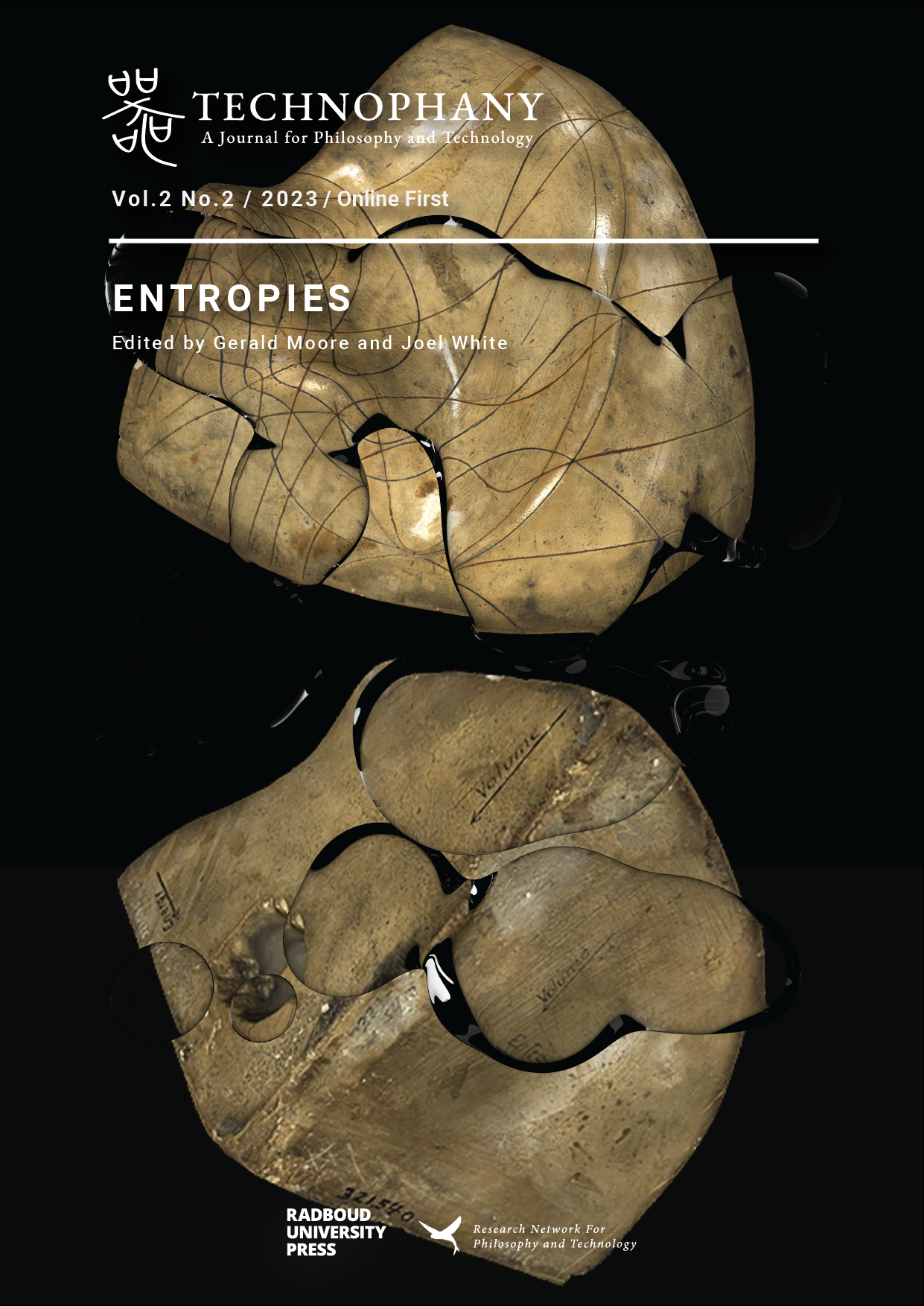The Thermodynamics of Life as a Speculative Model for Planetary Technology
DOI:
https://doi.org/10.54195/technophany.16090Keywords:
Dissipative systems, Entropy, Thermodynamics, Biology, Self-organization, Living technologyAbstract
Originating from nineteenth century physics, the concept of entropy—a measure of disorder, randomness, and/or the dissipation of useful energy—underlay a cosmology where order and complexity were seen as highly improbable phenomena in a universe tending toward chaos and disorganisation. Nearly a century later, theoretical frameworks were developed for understanding the production of entropy as an enabling feature of self-organized complexity in the natural world. These ideas would contribute to establishing connections between the origins, development, and evolution of life and the principles of a thermodynamic universe. For some, they also supplied the conceptual foundations for theorizing about a universal natural tendency driving the development of increasingly complex and ordered systems which amplify processes of entropy production and energy dissipation and dispersal. In this paper I chart a path through the aforementioned ideas and present their relevance in framing a relationship between our technological civilization and the Earth system. I then speculate about the prospect of a technosphere whose constitution and activity are aligned with thermodynamic principles of dissipation and entropy-production, drawing on theoretical biology and recent developments in bioengineering to envision a paradigm where technology becomes living matter itself.
Downloads








